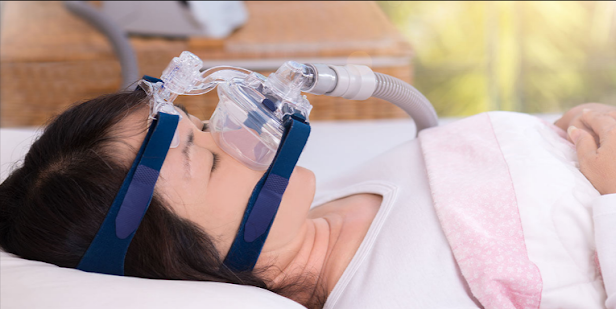There are several options for managing sleep apnea. They include:
Maintaining An Ideal Weight
People who are overweight are more likely to develop sleep apnea. Therefore, maintaining an ideal weight is important in managing sleep apnea. Before starting a diet or exercise program, talk with your doctor about your plan, to make sure it is safe.
Sleeping Position
Some people breathe better and snore less loudly when sleeping on their sides or stomach. There are simple techniques to keep you from sleeping on your back, including sewing a tennis ball to the back of your pajama top, wearing a soft backpack at night, or placing a pillow under your shoulder.
Sleeping Habits
Adopting good sleeping habits may improve the quality of your sleep, whether or not you have sleep apnea. Learn more.
Dental Devices
Dental devices, which may be otherwise referred to as oral appliances or mandibular advancement devices, are designed to push the jaw forward. Worn at night, they may widen the throat and increase the size of the airway. Dental devices may be more effective for mild or moderate apnea. Learn more.
Surgery
Surgery may potentially improve sleep apnea in very specific circumstances. Learn more.
CPAP (Continuous Positive Airway Pressure)
CPAP is generally recommended to treat sleep apnea. This common and effective treatment provides pressure to the person's airway through a machine that blows air. The airflow from the CPAP machine is delivered through a mask that fits on the face and covers the nose, or the nose and mouth. This air acts as a splint to keep the airway open during sleep, allowing breathing to become more regular. Snoring stops, and restful sleep is restored. Learn more.
Alternative Therapies for Obstructive Sleep Apnea (OSA) Other than CPAP
Obstructive sleep apnea requires treatment. If untreated OSA can result in serious health problems. The most common treatment used is continuous positive airway pressure (CPAP). CPAP can improve a majority of the symptoms of OSA.
In some cases people with OSA are unable to use CPAP or prefer to try other treatments; these therapies tend to be used in people with mild to moderate OSA. These other therapies include: oral appliances, positional therapy, upper airway surgery, nasal expiratory resistance and oral negative pressure devices. People who are overerweight are advised to lose weight, and exercise programs are advised for all peoples with OSA.
"" સંપૂર્ણ વિગતો ગુજરાતી માં વાંચો ""



No comments:
Post a Comment